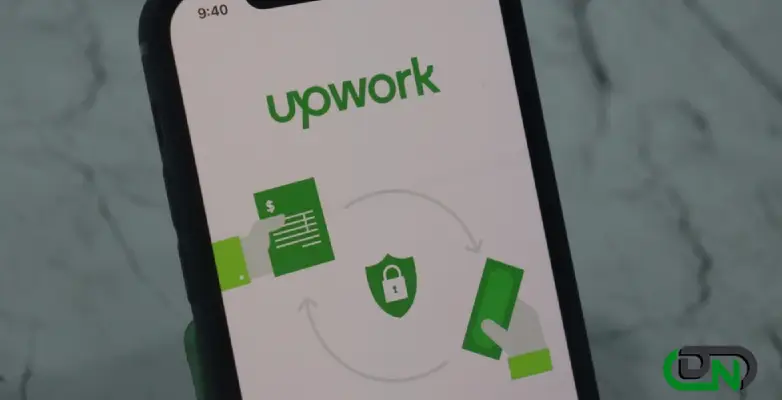Tax is a mandatory payment that must be paid by the citizens who are liable to pay it, which applies to all self- and corporate-employed people. In this regard, Upwork is a freelancing platform that enables independent contractors to find jobs and earn money.
It ensures that the US citizens working under it receive the important documents related to the management of taxes. However, you can only receive the required tax forms. Reporting and remitting your tax payments is your responsibility.
This article covers details about the types of taxes you must pay as an independent worker paid by Upwork, 1099 forms tax deductions, quarterly taxes, and the process to file them for the ongoing year. So, let’s start with understanding what an Upwork 1099 form is.
Table of Content
- 1 What is Form 1099?
- 2 What is W-2 Form?
- 3 What is the Eligibility to Receive a Form 1099-K?
- 4 What are the DOs to Safely Receive a 1099-K Form?
- 5 How to Report Self-employed Taxes in Upwork?
- 6 How to Calculate Estimated Tax Payments?
- 7 What is a Tax Underpayment Penalty?
- 8 What are the Common Tax Deductions for Upwork Independent Contractors?
- 9 How to Pay Tax Payments?
- 10 Is Consultation with Tax Advisors Essential?
- 11 Frequently Asked Questions
- 11.1 Who is Eligible for a Form 1099-K from Upwork?
- 11.2 Why is Updating Tax Information Essential?
- 11.3 When is the Usual Time for Receiving Form 1099-K from Upwork?
- 11.4 Do I have to Report my Income to the IRS even if I make Small Earnings on Upwork?
- 11.5 What are the Transactions to Qualify for a Form 1099-K?
What is Form 1099?
Based on the Internal Revenue Service (IRS) regulations, Form 1099 is a tax form for freelance workers reporting income that cannot be included in W-2 earnings (employee). As there are different types of employment, the IRS issues various 1099 forms respective to such employment.
A freelancer working with Upwork can receive a 1099-K form but independent contractors whose work is similar to employees may receive a Form 1099-NEC. Likewise, Form 1099-MISC is also applicable to many employees working with Upwork with an earning capacity of $600.
What is W-2 Form?
There are often freelancers that work on similar grounds to employees. If it is you, and you and your client have an agreement of you being an employee, the compensation will be made via Upwork Payroll. It means that Upwork will be your employer, take care of all payments of taxes and withholding, and issue a W-2 form. Thus, you don’t need to file any forms for independent contractors.
What is the Eligibility to Receive a Form 1099-K?
As an independent worker, you might receive a Form 1099-K from Upwork only if you qualify for the requirements. An individual must earn over $20,000 and have more than 200 transactions on the platform. Under the Section 6050W code of the IRS, Upwork will file the necessary form for you. However, if the mentioned requirements are not met and no Upwork form is issued for you, you are still responsible for reporting your income. You will receive a copy of Form 1099-K through the U.S. Postal Service postmarked by January 31st.
An essential fact is that the 1099-K reports nothing but payments. In other words, fees, withdrawals, taxes, and refunds are not eligible transactions. For example, you will still receive a Form 1099-K despite refunding $30,000 worth of earnings while making $600.
What are the DOs to Safely Receive a 1099-K Form?
To safely receive a Form 1099-K from Upwork, you should meet all the requirements mentioned above. Also, it is essential to provide correct tax information on your Upwork account. To enter and edit the tax address, you can follow the steps below:
- Go to Settings
- Go to Tax Information
- Select Tax Residence.
On the other hand, you must report your earnings even if you earn less than $600. It can be explained in the next section.
How to Report Self-employed Taxes in Upwork?
According to the IRS, all independent contractors are self-employed enabling them to be responsible for reporting and paying self-employment taxes. It includes Medicare confining to 2.9% of the taxes and Social Security with 12.4% of the taxes. For that, a U.S. individual is required to fill out an Upwork Form W-9. If not completed with a justified taxpayer identification number, that is, Employer Identification or Social Security number, Upwork will remit and withhold taxes, at a pre-set tax rate, from your payments to the U.S. IRS. To deliver Upwork your Form W-9, you need to follow the below steps:
- Go to Settings
- Select Tax Information
- Select W-9.
After the completion of filing the forms, estimation of your tax payments is important. The factors to consider while estimating your taxable income are provided below.
How to Calculate Estimated Tax Payments?
Taxable incomes are the collection of all of your sources of income. So, if you are engaged in a 9 to 5 job and also work freelance, the amalgamation of both sources of income will be your taxable income. If you predict owing over $1000 in taxes, you’ll need to pay estimated taxes. In the U.S., you can follow a pay-as-you-go system of taxation, which helps in avoiding huge tax bills at the year’s end. Estimated taxes can thus be paid quarterly and be calculated by dividing the previous year’s total tax liability by four.
Quarterly Tax Deadlines
The deadlines for submitting estimated taxes every quarter are:
- April 15 (First quarter)
- June 15 (Second quarter)
- September 15 (Third quarter)
- January 15 (Fourth quarter)
What is a Tax Underpayment Penalty?
In any case, if you send less than the amount you owe to IRS, you will be penalized for underpayment. The fine is usually added to your overall tax bill at the year’s end. Similarly, if you overpaid the estimated taxes, you will receive a refund of the overly paid taxes.
There are several benefits that an independent contractor can receive through deductions. Therefore, proper organization and storage of receipts for taxes when filing a Form 1099 is essential. Upwork freelancers can deduct business-centric expenses from their tax bills, ultimately reducing the overall tax payments.
What are the Common Tax Deductions for Upwork Independent Contractors?
- Equipment Depreciation: Are you planning or did you buy any device needed for your business? You have the right to depreciate the cost of the equipment throughout its usefulness.
- Home office Tax Deduction: In many scenarios, freelancers use their home space for business. The home office tax deduction can be made while considering home expenses such as mortgages, rent, repairs, insurance, and utilities. You can identify the total deduction by calculating the total percentage of the space exclusively used as a home office. This space must be used solely for the business.
- Marketing Costs: The costs associated with advertisements, business cards, and websites can be deduced from overall tax payments.
- Business Meals: Do you have a meeting with a client or professional for business development? You can save the receipt for reimbursement.
- Service Fees: Upwork charges services fees from its users. It can be depreciated from tax payments.
- Subscriptions: If you have subscriptions to applications and services that can increase your business potential, you can deduce it from overall tax payments. For instance, the costs related to membership for accurate stock images can be deductible.
- Travel Costs: Do you need to travel to meet the requirements of your business or attend a conference elsewhere? You can deduct the expenses from the overall taxes. Expenses like car rental, airfare, mileage, and insurance, tickets to conferences and trade shows, and hotel accommodations are all deductible expenses.
- Software Tools: The usage of software for marketing or finance for your freelance work can be deducted from the tax bills.
- Health Insurance: coverage costs for independent contractors along with their families can be deducted from their income.
- Internet Bills: Freelancers can deduct portions of their internet or wi-fi bills from the tax bills.
- Education Costs: Costs related to education specific to your industry can be deducted from tax payments as tuition and fees of your education.
- Partial Cell Phone Bills: The bills that are generated from the conversations with your clients can be claimed on your overall taxes as expenses.
How to Pay Tax Payments?
You can select any payment method to pay your taxes. Online and mail are, however, the most common methods of payment. Online submissions can be considered the best method to pay both self-employed and estimated taxes. Using a checking account or a credit card are also viable options.
Is Consultation with Tax Advisors Essential?
Taxation scenarios are different for all and require specific attention. The information in this article clears the matters regarding Upwork tax forms. However, it is recommended to consult with tax advisors for these situations. A tax advisor’s job is to explore all potential tax deductions and tax credit options that will help you maximize money savings.
As tax management is a hefty task, having a tax advisor at your side can reduce stress and time as well. Moreover, you will receive help regarding revenue forecasting, income and cost strategizing, and leveraging tax deductions, along with retirement plans.
The article sheds light on Upwork tax information and related facts. You have read details about Upwork Form 1099 and its different types. You have not only known the process to file a 1099-K form as an independent contractor but also noted the requirements for W-2 and W-9 forms.
In addition, you can now easily calculate the estimated and self-employed taxes for your business. The information regarding the deductions will be helpful to you as well. In case you have any issues related to the information provided here, you can contact our experts for more insights into the matter.
Frequently Asked Questions
Who is Eligible for a Form 1099-K from Upwork?
Any US taxpayer receiving a combined amount of $20,000 as payments through Upwork including 200 transactions can receive a Form 1099-K from Upwork.
Why is Updating Tax Information Essential?
Correct tax information helps Upwork to accurately file your 1099 forms as provided by the IRS and send them to your correct address during the tax filing season.
When is the Usual Time for Receiving Form 1099-K from Upwork?
Upwork mails the 1099-K form by January 31 every year for the payments of the previous year.
Do I have to Report my Income to the IRS even if I make Small Earnings on Upwork?
All income received under Upwork may be taxable and must be reported. Therefore, consultation with tax advisors about expenses and earnings is recommended.
What are the Transactions to Qualify for a Form 1099-K?
All fees, taxes, refunds, and withdrawals are not counted as eligible transactions. It includes only payments. The following list includes eligible transactions:
• Fixed-price Invoices
• Hourly Invoices
• Expense Reimbursements
• Bonuses




